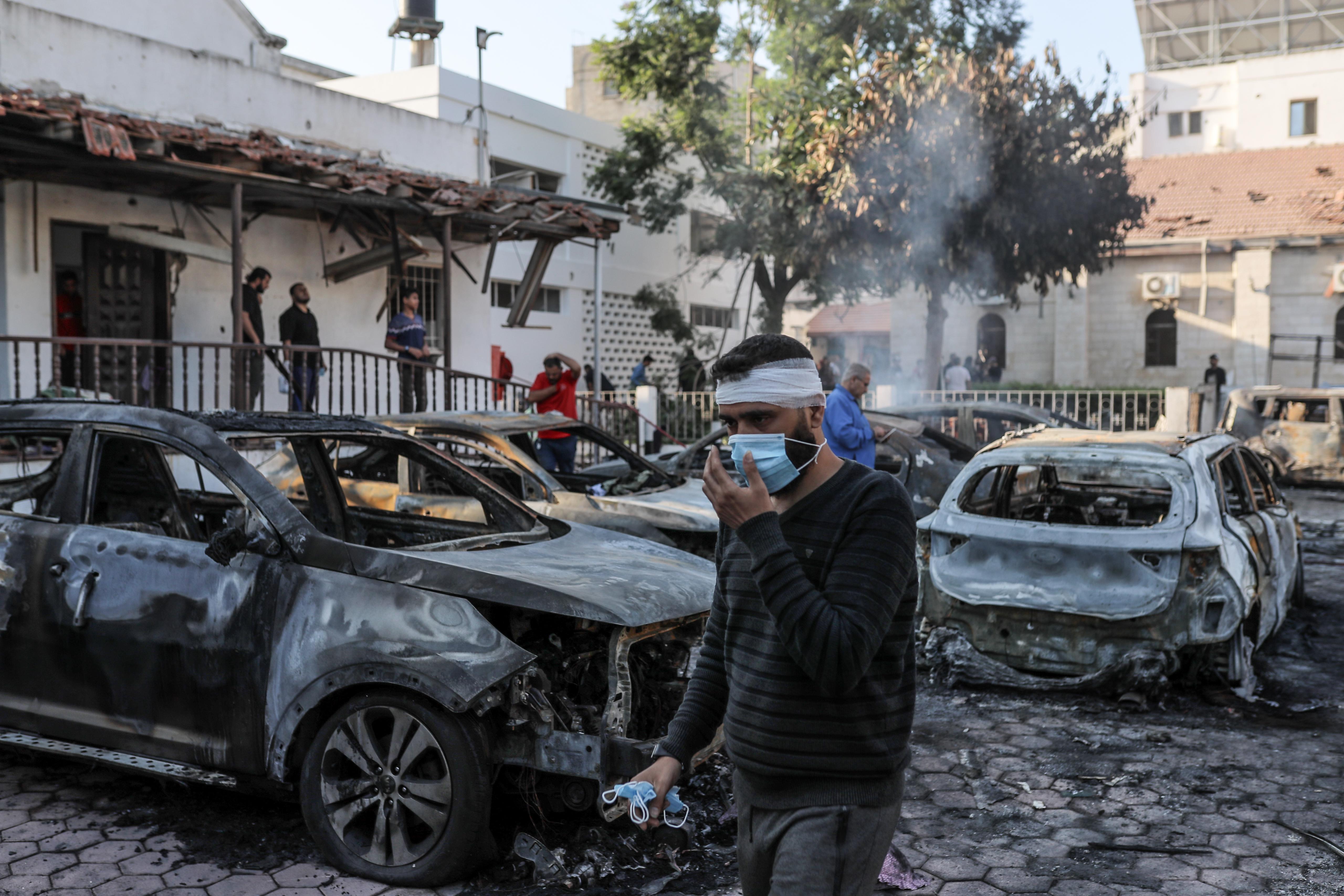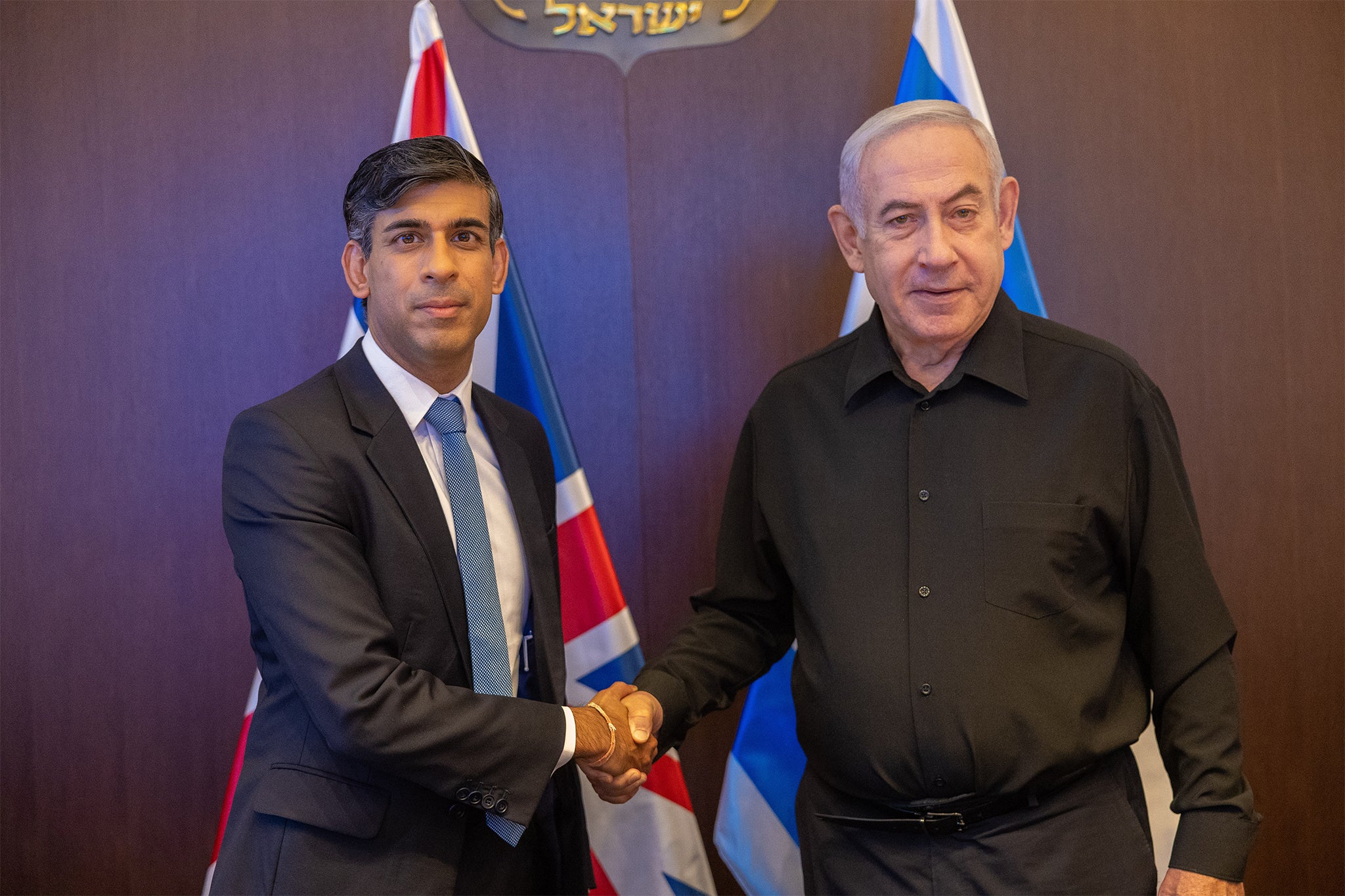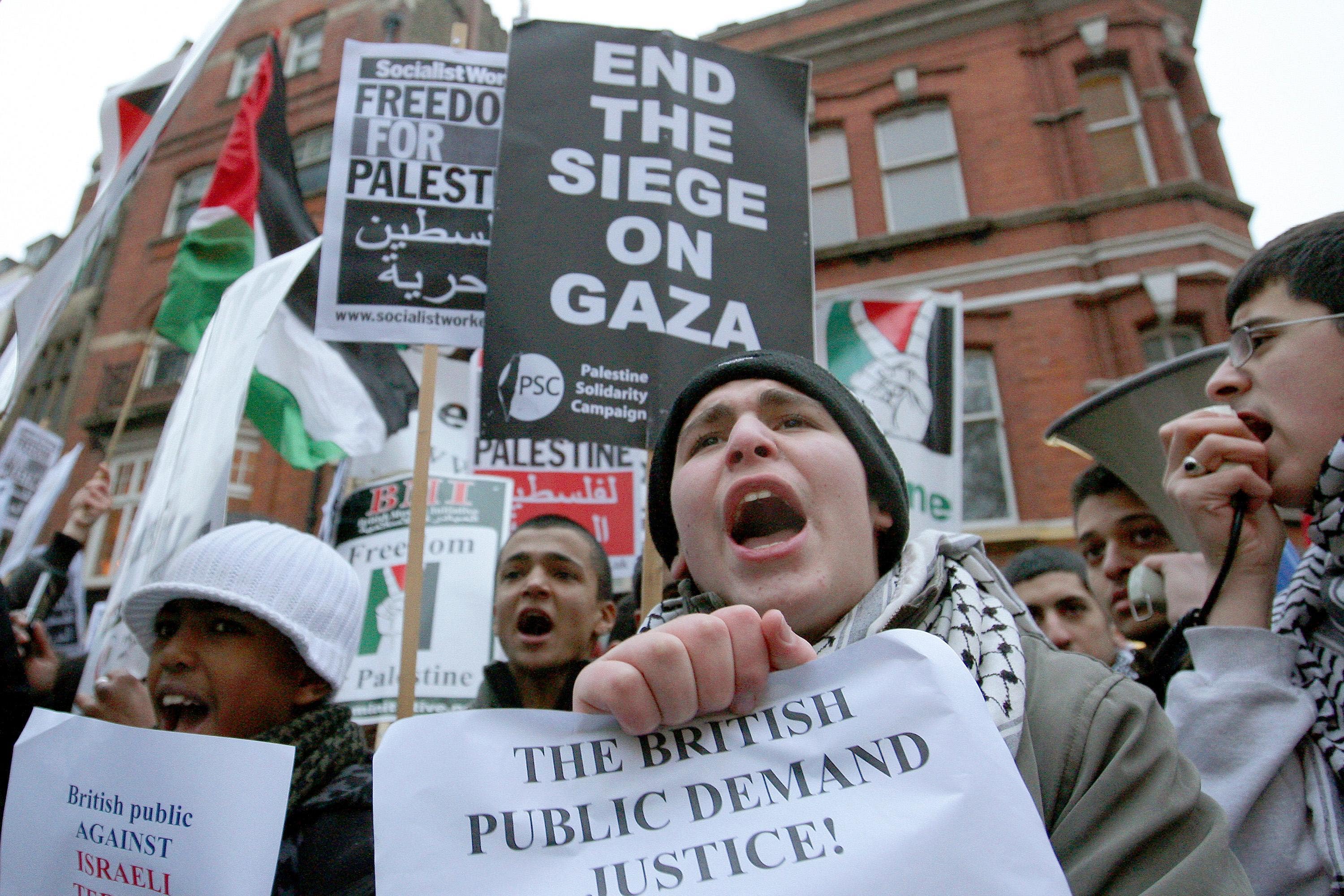Rishi Sunak says Israel not to blame for Gaza hospital blast
Missile likely launched ‘from within Gaza towards Israel’, says PM as he reveals ‘deep’ UK intelligence
Your support helps us to tell the story
From reproductive rights to climate change to Big Tech, The Independent is on the ground when the story is developing. Whether it's investigating the financials of Elon Musk's pro-Trump PAC or producing our latest documentary, 'The A Word', which shines a light on the American women fighting for reproductive rights, we know how important it is to parse out the facts from the messaging.
At such a critical moment in US history, we need reporters on the ground. Your donation allows us to keep sending journalists to speak to both sides of the story.
The Independent is trusted by Americans across the entire political spectrum. And unlike many other quality news outlets, we choose not to lock Americans out of our reporting and analysis with paywalls. We believe quality journalism should be available to everyone, paid for by those who can afford it.
Your support makes all the difference.Rishi Sunak has said Israel is not to blame for the Al-Ahli hospital blast in Gaza feared to have killed hundreds of innocent people.
The PM said UK intelligence had concluded that the explosion likely came from a missile launched from within Gaza, rather than from an Israeli air strike – as claimed by Palestinian terrorist group Hamas.
Mr Sunak told the Commons: “The British government judges that the explosion was likely caused by a missile, or part of one, that was launched from within Gaza towards Israel.”
The Hamas-run Gaza health ministry claimed 471 people were killed in what they called an Israeli air strike – but Israel denied responsibility and said it was caused by a misfired rocket by the Palestinian Islamic Jihad (PIJ).
Mr Sunak said the conclusion was based on the “deep knowledge and analysis of our intelligence and weapons experts” as he decried the “rush to judgement” in the hours after the 17 October blast.
The Conservative leader told MPs: “The misreporting of this incident had a negative effect in the region, including on a vital US diplomatic effort, and the tensions here at home.”
Mr Sunak said Israel had a “right and duty” to “go after” Hamas during his visit to Tel Aviv last week. The PM called the terrorist group “pure evil” and told Israeli PM Benjamin Netanyahu: “We want you to win”.
The prime minister again backed Israeli military action – rejecting MPs’ calls for a ceasefire and insisting that the UK “stand resolutely with Israel as it defends itself”. He added: “There is no scenario where Hama can control Gaza.”
However, Mr Sunak said that the current level of aid getting through to Gaza was “not enough”. He told the Commons: “We need a constant stream of aid pouring in … so we will keep up the diplomatic pressure [on Israel].” He also announced an additional £20m of humanitarian aid for the people of Gaza.

US president Joe Biden last week backed Israel’s account of the deadly blast – saying that the “other team” were behind the explosion as he visited Tel Aviv. Mr Biden said it was based on “data from my defence department”.
The Israel Defence Force (IDF) has claimed that a “failed rocket launch” by PIJ – the second-largest militant group in Gaza – was responsible for the hospital explosion.
The IDF released a recording of an intercepted conversation between Hamas officials admitting the hospital was hit by a PIJ rocket. Israeli officials have also argued that the absence of a large crater shows the explosion was not caused by one of its missile strikes.
Leading experts have said the evidence so far – from video footage, photos and eyewitness accounts – is not consistent with what would be expected from a typical Israeli air strike.
But officials in Gaza have blamed Israel for the blast, claiming that 471 were killed and 341 wounded. A spokesperson for the Hamas-run Gaza Health Ministry called it an “Israeli massacre”. The hospital explosion has become a lightning rod for anger at protests across the Middle East.

Meanwhile, Labour leader Keir Starmer pushed Mr Sunak to treble the UK’s aid to Gaza, as he called on the government to boost help in easing the “humanitarian emergency”.
Sir Keir also called on the government to ensure fuel is allowed into Gaza, as well as appointing a UK special coordinator for international aid to Gaza and deploy British experts and medical support teams.
Mr Starmer said the US-brokered deal to get a flow of trucks through the Rafah crossing – 20 on Saturday and 14 on Sunday – was “nowhere near enough”.
“We stand with Israel and her right to defend herself against the terrorists of Hamas. We stand for international law, the protection of innocent lives, humanitarian support for Palestinians,” the Labour leader told the Commons.

Mr Sunak also added to pressure on the Metropolitan Police by issuing a clear condemnation of the use of the word “jihad” at pro-Palestinian protests on the weekend.
The PM said: “Calls for jihad and for Muslim armies to rise up are not only a threat to the Jewish community but also a threat to our democratic values.”
However, hinting that his government could consider changes, Mr Sunak said: “Where there are gaps in the law, we’re happy to address and look at those … But we do believe at the moment the police do have the powers to arrest those who are inciting violence or racial hatred.”
Met chief Sir Mark Rowley met the home secretary Suella Braverman to discuss her demand for officers to use the “full force of the law” after a video emerged of a pro-Palestinian activist chanting “jihad”.
Sir Mark suggested that laws around extremism should be redrawn since they had failed to take into account “truly toxic messages” online. However, No 10 signalled that police are unlikely to be given more powers to address chants and other forms of protests deemed to be pro-extremist.
Mr Sunak clashed with Jeremy Corbyn – among the left-wingers calling for a ceasefire in the Commons – as he recalled that the ex-Labour leader had referred to Hamas as a “friend”.
The PM: “I’m surprised that he hasn’t made any reference to an organisation that he once described as a friend has perpetrated an absolutely appalling act of terrorism on over a thousand people.”
Mr Corbyn, seen shaking his head at Mr Sunak’s comments, previously said he regrets once calling members of Hamas and Hezbollah “friends”. He said: “It was inclusive language I used which with hindsight I would rather not have used.”





Join our commenting forum
Join thought-provoking conversations, follow other Independent readers and see their replies
Comments